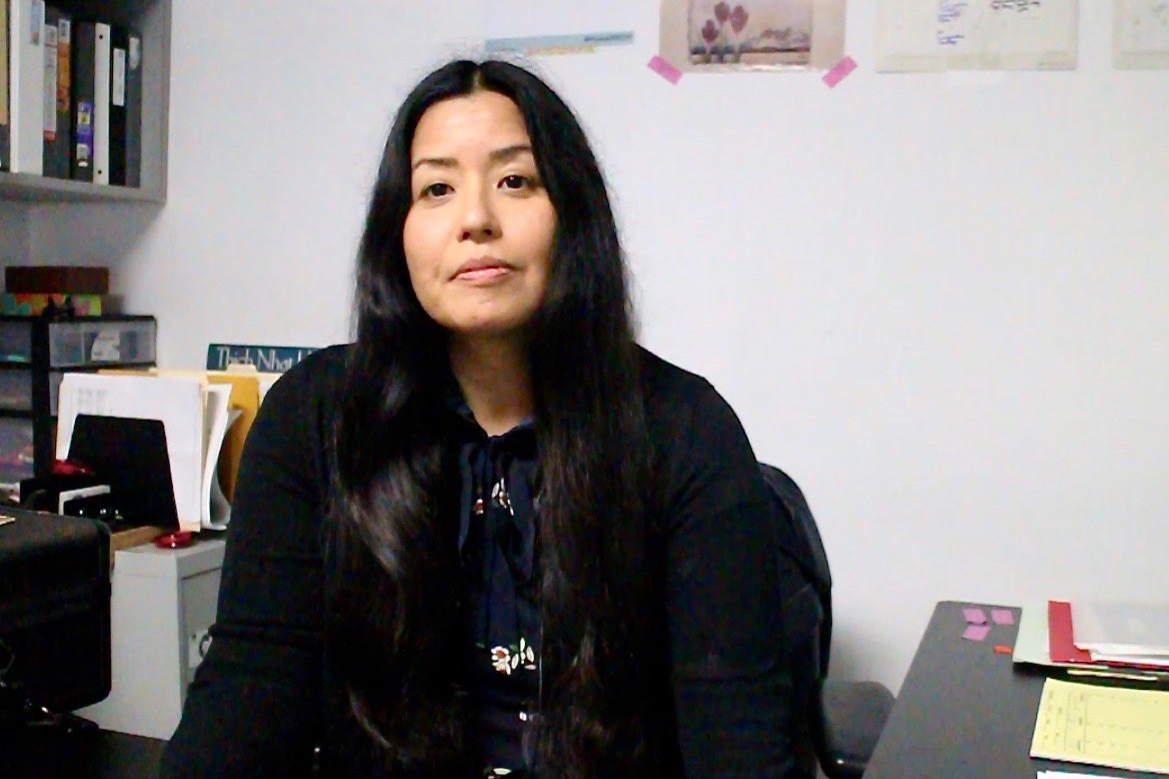Advocates for Chinese immigrants help them deal with
unfair labor practices and build their language access
Chinese immigrants like Peng face a daunting challenge: Can they change their fates through endless hard work?
It's a cruel question.
Li'i Furumoto of Asian Americans Advancing Justice-Los Angeles expressed her concerns as well.
"People don't see that there are barriers since everybody assumes that Asians all do well and are successful," she said, citing the "model minority" myth.
Language remains the first and biggest obstacle that most need to overcome. A knotty dilemma that low-skilled immigrants have to confront is that they have to devote as much time as possible on working to support themselves and their families. They don't have time to advance their skills. Meanwhile, affordable and feasible access is quite limited.
California ranks 45th nationally in the percentage of taxable income spent on education. "There used to be adult schools offered at almost all high schools in Los Angeles before the Great Recession," Furumoto said, but they have been largely eliminated because of budget cuts. "For a lot of immigrants, that's how they learn English," she said.
According to the Migration Policy Institute in its 2016 report, about 61% of Chinese immigrants ages 5 and over were reported to have limited English proficiency, compared with 49% of the total foreign-born population.
Jun Fu is the manager of Xingxing Employment Agency in Monterey Park. The agency's name translates as "prosperous" in English. It is the biggest agency providing service for Chinese workers in the San Gabriel Valley and was founded in 2000. The job opportunities offered by Xingxing are mainly clustered in restaurants, massage centers and construction, and the average salary is around $2,500 per month. "Normally the monthly wage of servers is higher than others, which is about $3,000 because of tips," Fu said.
Unfair situations, such as wage theft, leave many low-income immigrant workers at a disadvantage. Chinese immigrants can defend themselves only if they know their rights and relevant legal provisions. The reality, according to many immigrants, is that unjust situations happen all the time and that Chinese workers have to grin and bear it.
Furumoto said that her organization has dealt with many lawsuits.
"We've actually sued Asian businesses because they haven't paid fair wages or they've stolen wages from low-income workers, immigrant workers in particular," she said. "And those business owners think they can do something like this because they know immigrants know nothing and cannot fight back."
"This is something we should definitely improve," Furumoto said.
The recommendation of Asian Americans Advancing Justice-Los Angeles, in a 2018 report titled "Community of Contrast," is to enact language-access ordinances that improve local governments' ability to serve all residents. The organization cites the cities of Oakland and San Francisco, which have adopted ordinances to "improve access to services through bilingual assistance, translated materials, and other means."
AAAJ holds periodic English classes, mainly aimed at Chinese immigrants like Peng, which offer them precious chances to chat with friends and learn basic expressions.
In general, AAAJ says in its report, "the government should increase funding for free and low-cost adult English language programs, especially in place like the San Gabriel Valley. The organization also recommends support for "after-school and other youth programs that provide academic and cultural enrichment, leadership development, social justice education, and community engagement."
"For the Chinese-speaking folks, if they can't access English, they will be kind of insulated in that community financially and spiritually because it's so hard for them to get out of that," Furumoto said.
For older immigrants like Xiao and Peng, without the ability to change their destiny, all they can do is try to make as much money as possible for their families and themselves before they reach retirement age.
Suffering from homesickness, Xiao said she won't try for lawful permanent resident status. What she wants is to save money and go back home, perhaps never coming back.
Peng, by contrast, still sees her future in the U.S.. She plans to retire in seven years at the age of 67. By then her two younger kids will have graduated from college and she can have her own life back. "I will have spare time for friends and volunteer work," she said, "maybe still caring for the elderly."





